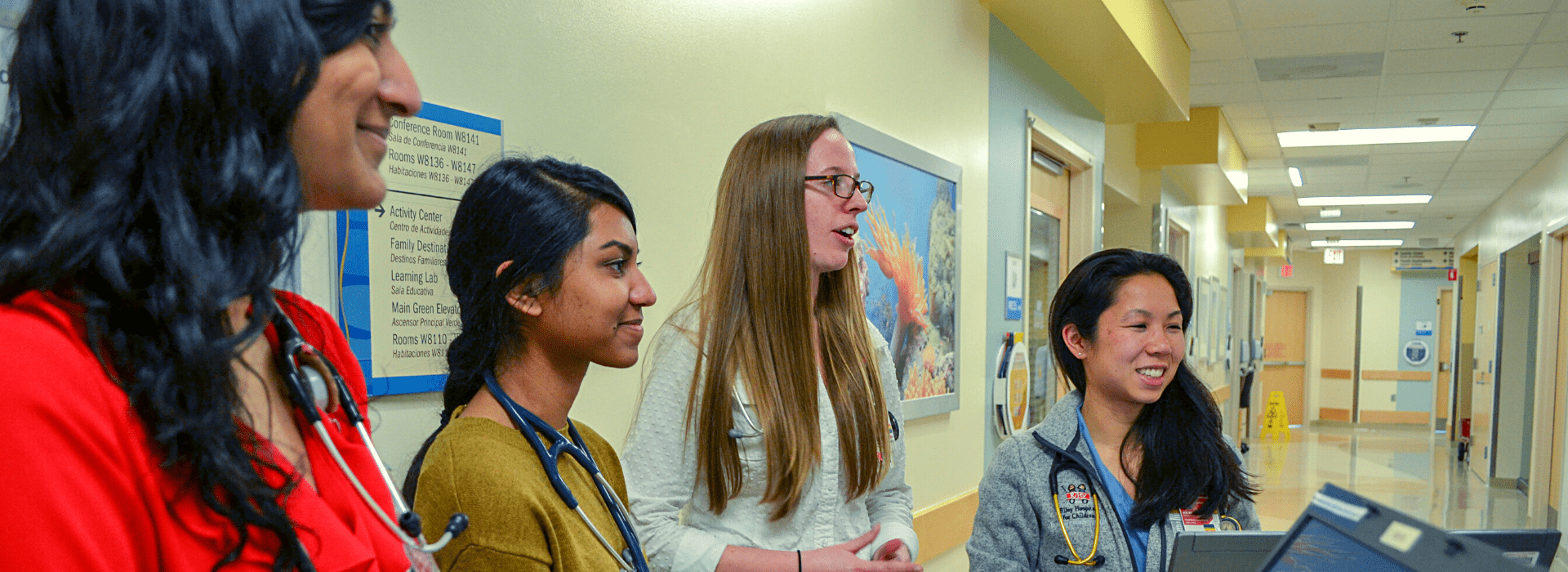Indiana University School of Medicine's Pediatric Residency offers outstanding training, a strong network of support and unique opportunities to focus on individual needs and interests. IU School of Medicine Pediatrics ranks 8th in pediatric research and provides unparalleled clinical educational experiences as the main pediatric center for the state, as well as global health partnerships in Kenya and other international sites.

Pediatric Residency Program

Pediatric Residency Program
Register to Match
To register to match with an IU School of Medicine Department of Pediatrics residency program, applicants must first register with the Electronic Residency Application Service (ERAS) and complete an application.
Video
Find your home in the Pediatric Residency program

Categorical Pediatrics
A three-year program, the Pediatrics Residency prepares residents for careers in community pediatrics, pediatrics subspecialty training, academic medicine and research.
Learn More Categorical Pediatrics

Pediatrics Research
IU School of Medicine Pediatrics is consistently ranked in the top ten institutions nationally for National Institutes of Health research funding. IU School of Medicine offers robust professional development programs for physician scholars who are interested in a career as a pediatric physician scientist.
Learn More Pediatrics Research

Global Health
Pediatric Residents can earn a certificate of competency in global health by completing requirements that include a one or two-month rotation in a developing country. In addition to international travel, residents may work within the Indianapolis community in international adoption, travel medicine and other clinics.
Learn More Global Health
